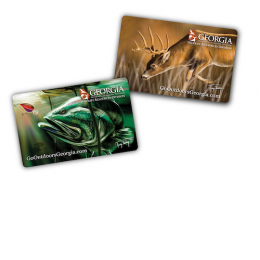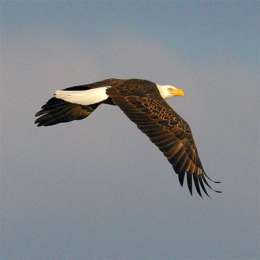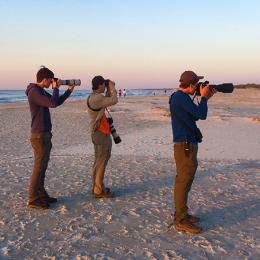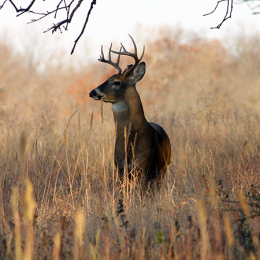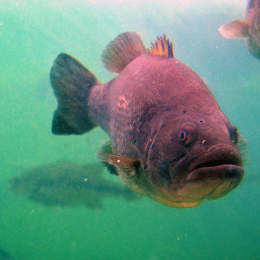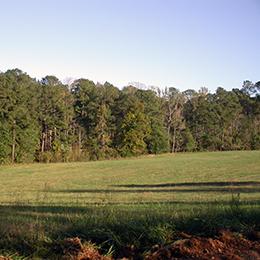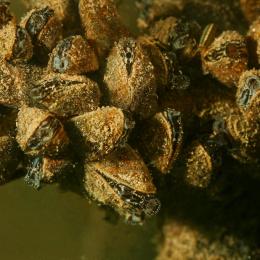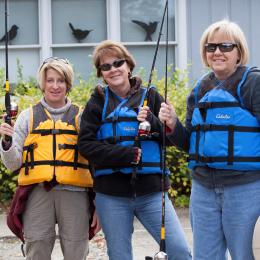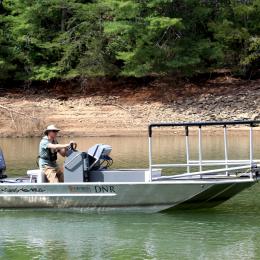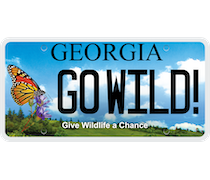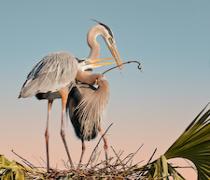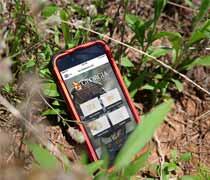Report Bird Mortality
Learn more about HPAI on DNR's avian influenza page.
- What are the signs of HPAI?
-
Birds in some species infected with highly pathogenic avian influenza (HPAI) may be asymptomatic – showing no signs of being sick – while others may show clinical signs ranging from lethargy to severe neurologic effects such as circling, tremors and seizures. Often birds are found dead with no signs of trauma or other causes.
- How does HPAI spread?
-
Infected birds can shed HPAI through saliva, nasal secretions and feces. Feces are a common mode of transmission for wild birds. Animals can become infected when they are around other HPAI-infected animals or come in contact with contaminated surfaces. For more, visit cdc.gov.
- What types of birds can HPAI affect?
-
HPAI can infect wild and domestic birds, but some seem more susceptible to contracting it. These include waterfowl (ducks, geese, swans, gulls and terns), shorebirds (storks, plovers and sandpipers), raptors (eagles, hawks) and scavengers (vultures, crows). Domestic poultry such as chickens, turkeys and ducks are also susceptible. Songbirds are at much lower risk for hosting avian influenza.
- How did the reports of HPAI start in Georgia?
-
Routine surveillance is conducted annually in the state to detect avian influenza in wild birds. In 2022, the state’s first case of HPAI was found in a hunter-harvested duck from Hart County. More cases of HPAI were later detected in deceased ducks, bald eagles and vultures.
- What is Georgia doing to reduce the risk of HPAI spreading?
-
DNR and other state and federal agencies are coordinating closely to monitor, investigate and document cases of HPAI. It is important to remember that avian influenza viruses normally circulate in wild bird populations at some level during most years.
- When and how should sick or dead wild birds be reported?
-
Seeing multiple dead wild birds in a single location? If they are vultures, crows, waterfowl (ducks and geese), other waterbirds (such as cormorants, pelicans, herons and egrets) or shorebirds (ex., gulls, terns, sandpipers, plovers), please report them to DNR using the button below. Also use this link to report dead or sick birds of prey (eagles, hawks, falcons, owls and osprey).
The agency strongly recommends that such incidents be observed only from a distance to reduce the risk of transmitting the disease.
If you find multiple dead songbirds or other species not specified above, please do not report them using the online form. Instead, call a local DNR office.
For further guidance, contact the agency at 1-800-366-2661 or an area office.
Multiple dead poultry, domestic ducks or pet birds should be reported to the Georgia Avian Influenza Hotline, (770) 766-6850 or gapoultrylab.org/avian-influenza-hotline.
- How should I dispose of a dead bird?
-
Avoid handling sick or dead birds. If you must dispose of a dead bird, wear disposable gloves or place an inverted plastic bag over your hand to avoid direct contact when picking up the carcass. Generally, it’s best to bury the carcass at a depth where it cannot be dug up.
However, if you find a deceased protected species such as a bald eagle, please call DNR at 1-800-366-2661 or (478) 994-1438.
- Can HPAI spread to humans and pets?
-
It is possible but very rare. As of summer 2022, only one human infection from the current virus (H5N1) has been documented in the U.S., according to the CDC. That person was involved in culling poultry presumed with H5N1 in Colorado. Keep pets (including pet birds) away from sick or dead birds.
- How should I maintain bird feeders and feeding areas in my yard?
-
Research suggests avian flu is unlikely to become widespread in songbirds except for scavenging species such as crows and possibly in areas where transmission risks are higher, such as near infected poultry facilities or gatherings of infected waterfowl. However, regularly cleaning feeders, feeding areas and birdbaths can help reduce the risk of many diseases that do affect songbirds.
- Clean feeders weekly with a 10% bleach solution (one part bleach mixed with nine parts water). Rinse with water and allow to air dry thoroughly. Always wear protective gloves while cleaning feeders, feeding areas and birdbaths, and wash carefully afterward.
- Rake up bird seed, hulls and fecal matter beneath feeders two or more times a week. Wear a mask to avoid inhaling fungal spores stirred up by raking. Double bag and dispose in the trash.
- Empty and clean bird baths every two days when bird visitation is heavy. Learn more at georgiawildlife.com/clean-feeders-save-birds.




